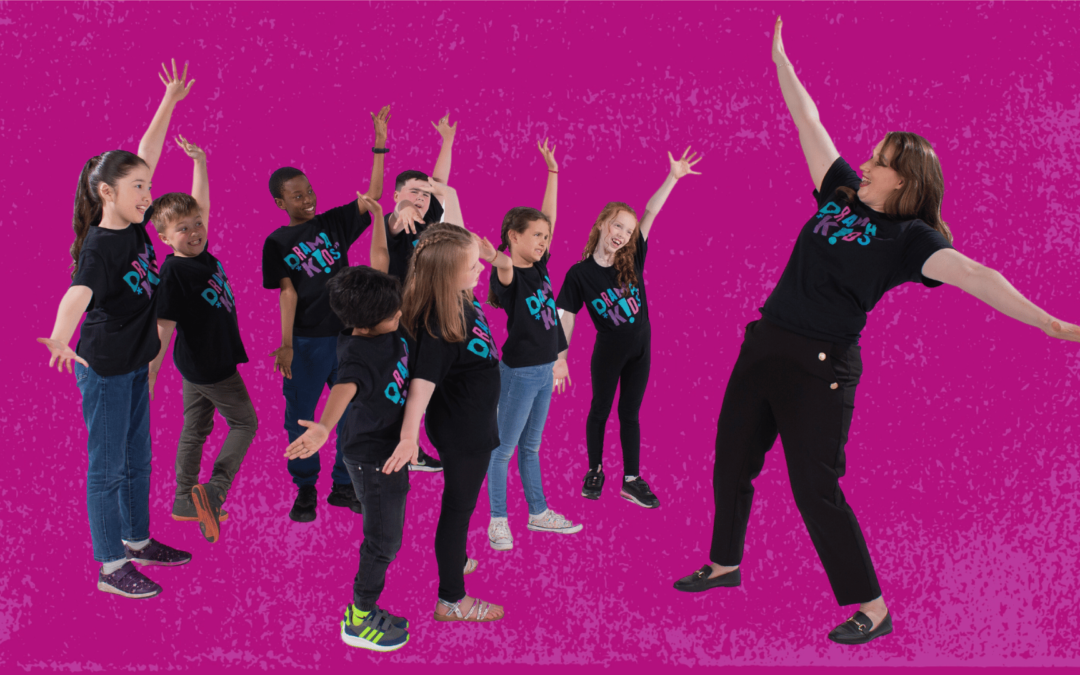Drama can be a powerful tool for promoting mental health and well-being in several ways:
- Emotional Expression: At Drama Kids we provide a safe and supportive environment for children to explore and express their emotions. Through acting, improvisation, and role-playing, participants can delve into complex feelings, experiences, and issues, allowing them to release pent-up emotions and gain a deeper understanding of themselves.
- Catharsis: Engaging in dramatic activities at our weekly one hour lessons can provide a cathartic release for all ages, allowing them to purge negative emotions and experiences in a healthy and constructive manner. This emotional release can help reduce stress, anxiety, and depression, providing a sense of relief and renewal.
- Empowerment: At Drama Kids our weekly lessons empowers children to take on different roles and personas, enabling them to step outside of their own experiences and perspectives. This can be particularly beneficial for children struggling with mental health issues, as it allows them to explore alternative identities and narratives, fostering a sense of agency and control over their lives.
- Social Connection: Drama encourages collaboration and teamwork, providing opportunities for everyone to connect in a meaningful and supportive way. By working together towards a common goal, participants can develop strong bonds and a sense of belonging, which can combat feelings of isolation and loneliness often associated with mental health issues.
- Self-Confidence: Participating in our weekly drama lessons can boost self-confidence and self-esteem, as one develop new skills, overcome challenges, and receive positive feedback from peers and mentors. This increased confidence can extend beyond the stage, empowering individuals to tackle other areas of their lives with greater resilience and optimism.
- Creative Expression: Drama fosters creative expression and imagination, allowing children to explore their creativity and problem-solving skills in a fun and engaging way. This creative outlet can provide a sense of fulfillment and purpose, as well as a distraction from negative thoughts and feelings.
- Mindfulness: Engaging in drama requires individuals to be fully present in the moment, focusing their attention on the task at hand and immersing themselves in the fictional world of the performance. This mindfulness practice can help reduce rumination and anxiety, promoting a sense of calm and mental clarity.
- Stress Relief: Drama activities can be enjoyable and entertaining, providing a welcome distraction from the stresses and pressures of daily life. Whether performing in a play, participating in an improvisation game, or attending a theater production, engaging in drama can lift spirits and improve mood, promoting overall mental well-being.
Overall, drama offers a rich and multifaceted approach to promoting mental health, providing opportunities for emotional expression, empowerment, social connection, creativity, and mindfulness. By incorporating a weekly one hour lesson at Drama Kids into educational programs, and community initiatives, mental health professionals, educators, and artists can harness its transformative potential to support individuals in their journey towards greater mental well-being.
